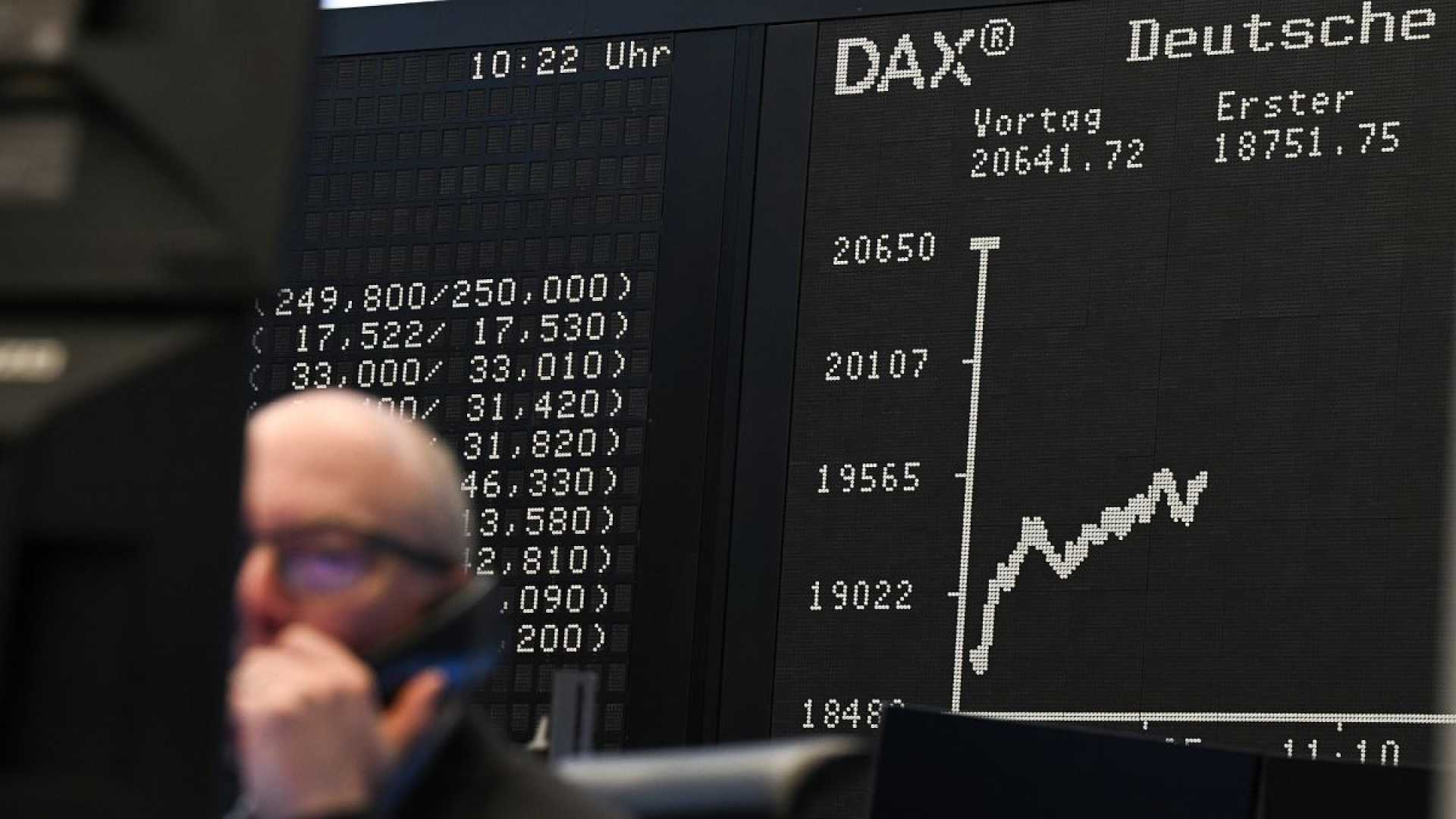Business
Stock Market Faces Turbulence Amid Tariff Uncertainty

NEW YORK, NY – The stock market experienced significant turbulence this week following the Trump administration’s announcement of larger-than-anticipated tariffs, causing widespread concern among investors. On Monday morning, the Dow Jones Industrial Average opened down over 1,158 points, marking a challenging start to the trading week, though it managed a slight recovery by day’s end.
As investors reacted to the shock announcement, the mood on Wall Street turned increasingly anxious. By the closing bell on Monday, the Dow settled at 37,965.60 points, a decline of 0.91%. Similarly, the S&P 500 index fell by 0.23% to end at 5,062.25 points. Individual stocks, particularly in the auto sector, saw drastic fluctuations, contributing to a sense of instability within the market.
David Sekera, Chief U.S. Strategist at Morningstar, spoke to the ongoing debris from last week’s tariff news, stating, “The market is in a sell-first, ask-questions-later mentality, with most sectors reflecting losses as investors navigate the uncertainty. We’re officially in bear market territory, down 24% from the February 19 high, and many stocks have fallen significantly.”
Last week’s market response was largely anticipated. Morningstar’s data revealed the Morningstar U.S. Market Index dropped 13.76% year-to-date, with a notable 9% loss occurring just last week alone. The technology sector led the downturn, falling 22%, followed by consumer cyclical and growth stocks, which suffered similar declines with a 19% and 17.5% decrease, respectively. In contrast, the energy sector has shown resilience, with a modest gain of 1% year-to-date.
As the Tariff impacts unfold, the Federal Reserve’s policy direction remains a significant question. Sekera indicated that the Fed’s options might hinge on inflation data, with growing expectations of a near-term recession now estimated to be between 40% to 50% probability. The tariffs are projected to increase inflation, contributing to a tighter financial environment.
“In terms of monetary policy, tariff hikes without additional tax cuts could necessitate interest-rate cuts sooner rather than later, though we must consider the inflation impact which could delay these decisions,” Sekera elaborated.
Looking forward, several prominent companies’ earnings reports set to be released this week will be scrutinized, especially within the financial sector, where big banks like JP Morgan and Wells Fargo are expected to weigh in on the implications of the tariffs.
The anxiety among consumers is palpable, as the tariffs are projected to impact households financially. The Tax Foundation estimates a potential $1,900 tax hike on average for U.S. families due to the recent tariff policy, placing additional stress on the budgets of lower and middle-income households. Financial analysts warn that while wealthy families may afford to absorb the hit, everyday Americans will likely feel the significant pinch in their disposable income.
Economist Garrett Watson from the Tax Foundation stated, “The most affected will be working-class individuals and families as they bear the brunt of these tax increases, impacting both their spending and savings potential.”
In response to the market’s volatility, Sekera suggests a cautious approach for investors. “Now is a good time to consider a tactical overweight position in equities, particularly value stocks, while remaining vigilant about overall market volatility. Dollar-cost averaging could help investors navigate this uncertain landscape more effectively,” he advised.
As market fluctuations continue to whip investors into a frenzy and the White House remains ambiguous about tariff negotiations, the coming weeks will reveal how the economy and stock market navigate this turbulent terrain.












